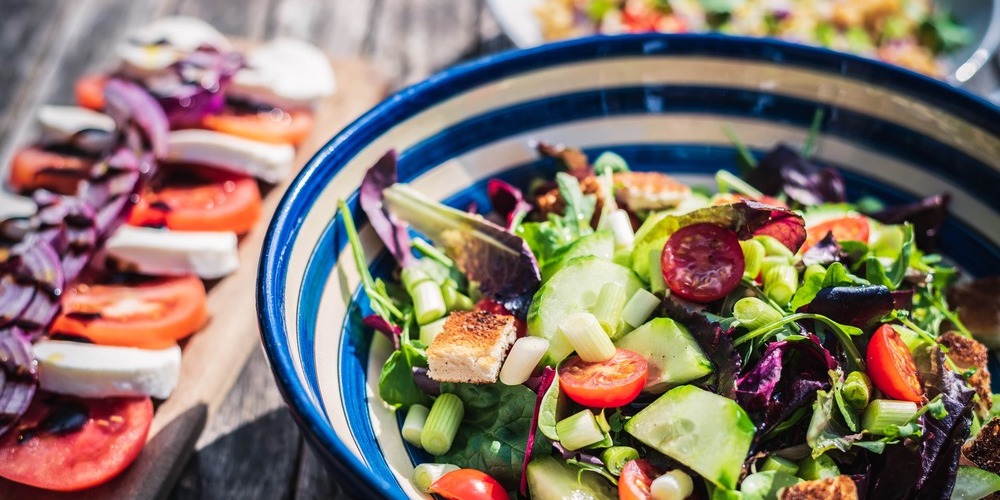In recent years, many different dietary approaches have been developed. They range from the traditional high-carbohydrate regime for endurance athletes, to the ketogenic diet, up to the vegan diet. In this article, we provide an overview of the different dietary philosophies.
Although we will present 7 nutritional philosophies in the following, we would like to point out that we do not want to indicate any of the theories as the most suitable/best.
Each person has individual nutritional needs based on weight, height, gender, age, physical activity level and training goals. It is therefore advisable that triathletes, cyclists and runners consult a professional nutritionist to determine the appropriate calorie and nutrient intake for their needs.
Carbohydrate diet
The nutritional needs of athletes are varied. Here is an overview of the different nutritional theories for triathletes, cyclists and runners.When it comes to endurance sports, carbohydrates play a central role. They represent an immediate source of energy for the body during prolonged exercise. A carbohydrate diet helps triathletes and cyclists to better manage muscle glycogen reserves and allows them to maintain an optimal performance level. We often hear of ‘carboloading’, which consists of increasing the amount of carbohydrate intake so as to start training or racing with maximum glycogen stores.
To find out more, we have a specific article on the role of carbohydrates in an athlete’s diet.
High-protein diet
For athletes, protein is crucial for building and restoring muscles. During physical exertion, in fact, muscle micro-injuries can occur requiring an adequate protein supply to allow reconstruction of damaged tissue. Protein can also provide energy during physical activity, although to a lesser extent than carbohydrates and fats. It is important to remember that proteins are not a single substance, but a complex set of nutrients with different functions depending on their source (milk, meat, fish, eggs, etc.).
To find out more, here is an article on proteins for endurance athletes.
High-fat diet
The ketogenic diet, i.e. a high-fat diet, is becoming increasingly popular among endurance athletes. This diet is based on the theory that a reduction in carbohydrate intake, combined with an increase in fat, can improve the body’s ability to use fat as an energy source during exercise, thus maintaining muscle glycogen reserves.
Vegetarian diet
The vegetarian diet is based on the exclusion of meat and fish and focuses on foods of vegetal origin such as fruit, vegetables, whole grains, pulses and nuts, but allows the intake of foods from indirect animal sources such as eggs, milk and cheese. Endurance athletes can also adopt this type of diet, but proper planning is required to ensure the intake of all the nutrients needed to sustain athletic performance and prolonged exertion. The vegetarian diet, by not completely excluding foods of animal origin and containing a high intake of carbohydrates, is potentially balanced. However, the intake of the right mix of high-quality protein, complex carbohydrates, healthy fats, vitamins and minerals is essential.
Vegan diet
The vegan diet, unlike the vegetarian diet, excludes all kinds of animal products and is based exclusively on foods of plant origin. Again, a vegan diet is sustainable for endurance athletes as long as it is planned with the right balance of nutrients needed to support training. Vegan foods are rich in carbohydrates, antioxidants and nutrients beneficial for rebuilding muscle tissue. Many vegan athletes regularly prove that the image of incompatibility between elite sport and vegan diet is outdated. Vegan athletes can meet their energy needs through careful food choices that optimise both health and performance.
Mediterranean Diet
The Mediterranean diet is based on foods typical of countries bathed by the Mediterranean Sea, including fruit, vegetables, cereals, pulses, nuts, fish and olive oil. The consumption of red meat, sugar and processed foods is limited. Due to its flexibility, the Mediterranean diet is an ideal choice for athletes, as it provides a balanced mix of carbohydrates, proteins and healthy fats. In addition, it is rich in antioxidants, protective substances that help prevent inflammation associated with high-intensity training, minerals and water, which support the maintenance of physiological functions.
Intermittent fasting
We conclude with the intermittent fasting diet, which can be beneficial for some athletes. However, it is not the most suitable for people who need a lot of energy for training. This diet generally involves an eight-hour period where you can eat, followed by a 16-hour phase where you fast. Such a diet can help the athlete use insulin (a protein hormone) more efficiently, and consequently reduce the risk of diabetes and improve the body’s ability to use glucose as an energy source. It is also helpful in reducing body fat and stress on joints and muscles.
You might also be interested in this:
Fasting Training and Weight Loss: Truths and Myths
